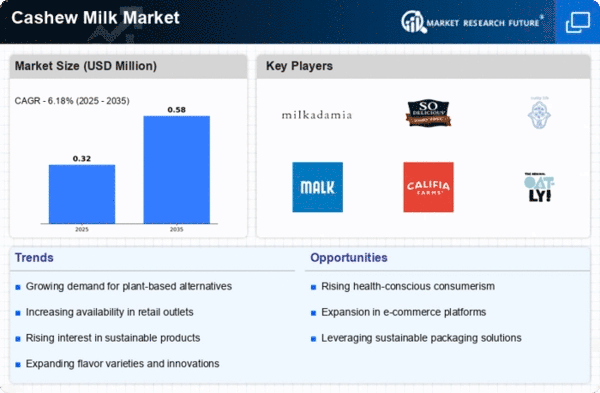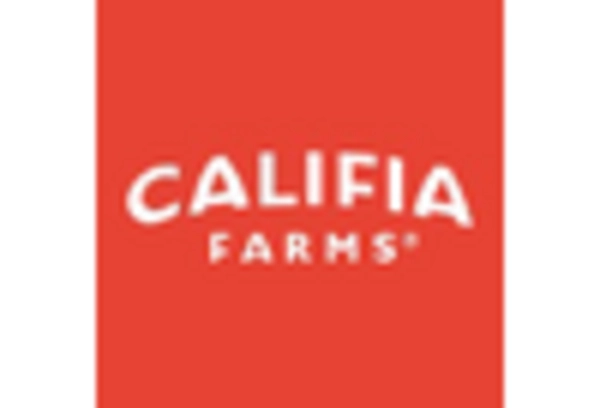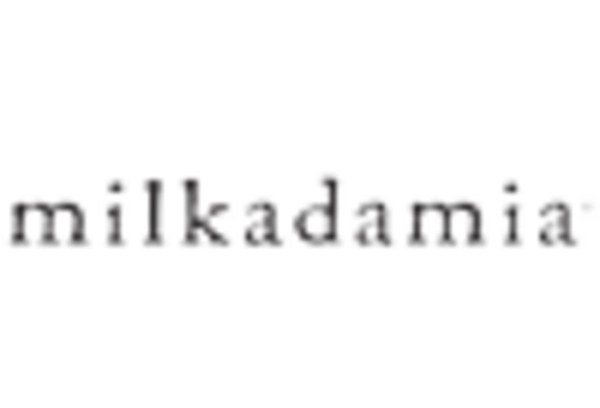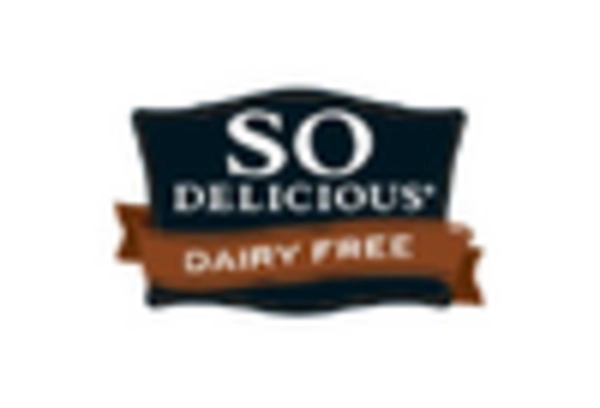Market Analysis
In-depth Analysis of Cashew Milk Market Industry Landscape
The Cashew Milk Market operates within a dynamic framework influenced by various factors that collectively shape its growth, trends, and overall trajectory. At the core of these dynamics is the rising consumer demand for plant-based milk alternatives, driven by factors such as health consciousness, dietary preferences, and environmental sustainability. Cashew milk, derived from the cashew nut, has emerged as a popular and versatile dairy milk substitute, offering a creamy texture and nutty flavor. The market is significantly influenced by the global shift towards plant-based diets and the continuous quest for innovative and nutritious alternatives to traditional dairy.
Supply chain dynamics play a crucial role in shaping the Cashew Milk Market. The cultivation, harvesting, and processing of cashews impact production costs and overall market competitiveness. The geographical concentration of cashew nut production, with major sources including countries like India, Vietnam, and Africa, contributes to supply chain intricacies. Additionally, factors like weather conditions, trade policies, and transportation logistics influence market dynamics and affect both supply and pricing.
Technological advancements and innovations in cashew milk production contribute to market dynamics. Continuous research and development efforts focus on optimizing extraction processes, fortification techniques, and flavor profiles. Advanced processing technologies, including cold-pressing and enzymatic treatments, contribute to the development of high-quality cashew milk with enhanced nutritional content and improved sensory attributes. These innovations not only cater to consumer preferences for quality and taste but also support the market's evolution to meet diverse needs, including lactose-free, vegan, and clean-label options.
Consumer preferences for plant-based and allergen-free alternatives drive market dynamics in the Cashew Milk Market. As consumers increasingly seek dairy-free options for health, ethical, and environmental reasons, cashew milk has gained popularity for its rich and creamy consistency. The market has responded with a variety of cashew milk products, including plain, flavored, and fortified options, expanding choices for consumers seeking alternatives in coffee, cereals, and cooking applications.
The regulatory landscape also plays a significant role in shaping market dynamics. Stringent regulations related to food safety, labeling, and nutritional claims impact the production, marketing, and sale of cashew milk. Companies must navigate these regulations to ensure compliance and communicate transparently with consumers about the composition and nutritional benefits of their products.
The competitive landscape of the Cashew Milk Market features a mix of established dairy alternative companies, plant-based milk manufacturers, and niche players specializing in nut-based beverages. Strategic collaborations, acquisitions, and partnerships are common as companies aim to enhance their cashew milk portfolios, expand market presence, and leverage consumer trends. Additionally, the market is witnessing a focus on sustainability, with companies incorporating eco-friendly practices in both sourcing and packaging to align with the growing emphasis on environmental responsibility.



















Leave a Comment